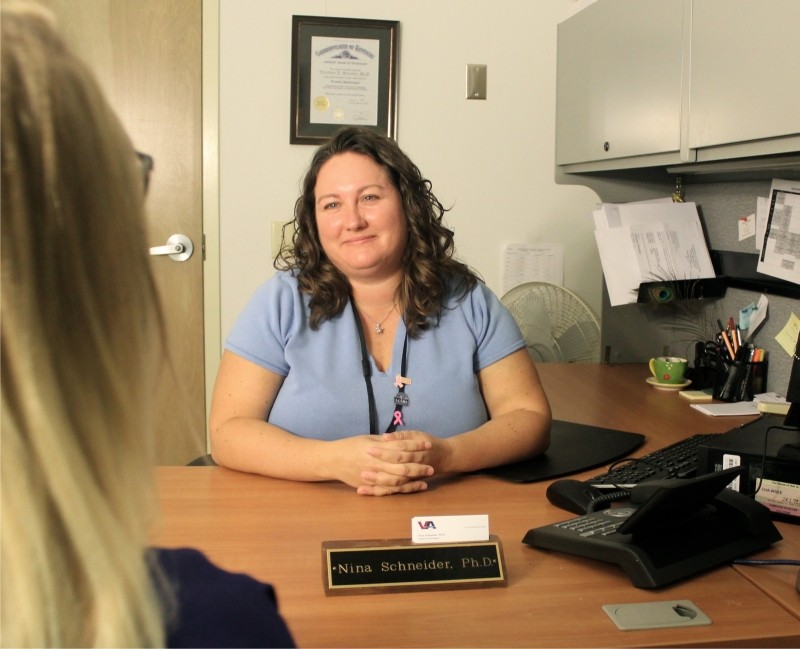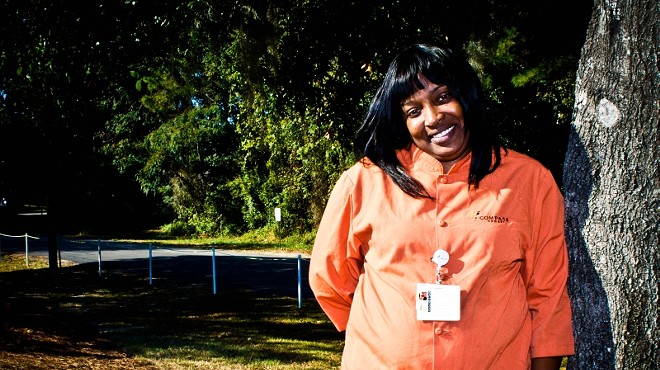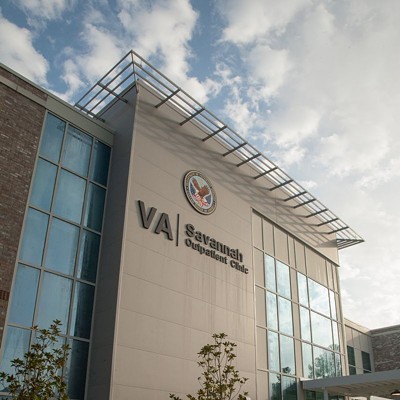THE MAJORITY of U.S. troops have returned home from Iraq and Afghanistan, but for many, the war will continue long after they hang up their uniforms.
One out of five soldiers who have served in the Middle East has been diagnosed with Post Traumatic Stress Disorder (PTSD). Twenty percent of the total suicides in the U.S. are veterans, averaging almost one a day.
Veterans under 24 are four times more likely to take their own lives than any other age group.

Yet with the top administrative tiers of Veterans Affairs in shambles and VA hospitals overcrowded and underfunded, finding treatment for the lasting psychological effects of combat can be notoriously difficult. Wait times for therapy appointments can exceed ten months, and many soldiers turn to drugs and alcohol to alleviate the depression, nightmares, anxiety and other symptoms associated with PTSD.
In Savannah, local vets may be able to get help immediately if they’re willing to participate in the VA’s PROGrESS study. Short for Prolonged Exposure/Setraline Study, the research effort investigates the most effective treatment for PTSD by combining a type of talk therapy called Prolonged Exposure with sertraline, an anti-depressant best known by its brand name, Zoloft.
But PROGrESS is much more than an effort to collect data—it’s a way to fast track veterans with PTSD on to already-proven protocols.
“I can’t emphasize enough that if someone qualifies for the study, their treatment can start right away,” says Dr. Nina Schneider, a clinical psychologist at the VA Primary Care Clinic on Middleground Road. “Otherwise, it can take months to get an appointment.”
Funded by the Department of Defense, the four-year study began in 2013 and is being conducted at four separate sites in the U.S. Some of the country’s most stringent academic institutions are supporting partners, including the University of Michigan in Ann Arbor, the University of California in San Diego, Harvard Medical School in Boston and the Medical University of South Carolina, operating out of Savannah’s VA clinic.
So far 148 veterans have participated nationally, and Savannah leads the enrollment with 59, despite its status as the only outpatient facility in the study. Some of those local participants have traveled to the Ann Arbor site for functional MRIs (fMRIs) that provide images of brain activity and other biological markers.
“For our purposes, we are looking to answer how sertraline and PE therapy affects parts of the brain,” explains study coordinator Michelle Pompei.
“How is it different in patients who respond differently to the treatments? Can differences in the brain predict treatment outcomes?”
Dr. Schneider has worked with the VA for eight and a half years, much of that at the dedicated PTSD clinic in Lexington, Kentucky. She’s been working in Savannah for four months and recognizes the same symptoms in local vets as the ones she has observed from around the country.
“There’s definitely a pattern of anxiety, depression, nightmares...their families complain of anger issues and irritability,” says Dr. Schneider, adding that that there’s a marked difference in the PTSD symptoms of combat and non-combat veterans.
“There’s a broader spectrum of behaviors for non-combat veterans, from mild depression to hoarding, but for combat veterans, the symptoms tend to be specific.”
A sense of impending disaster, emotions that flip on a dime, always feelings stressed out, panic triggered by unexpected sounds—these are experiences common to almost every combat veteran, regardless of age, race or gender.
And then there are the recurring bad dreams.
“I don’t know a single vet who comes back and isn’t angry and having nightmares. It’s sad, but it’s tending normative,” she says with a sigh.
Though PTSD has been discussed as a possible cause for the murderous rampage committed by Staff Sgt. Robert Bales that left 16 Afghani civilians dead in 2012, Dr. Schneider is careful to affirm that a PTSD diagnosis doesn’t necessarily mean violence.
“People tend to turn on themselves, trying to repress memories with drugs and alcohol, but it doesn’t work. If it did, they wouldn’t be sitting in my office.”
What has been proven to work is an appropriate dose of sertraline, which was found to be the most effective of all pharmaceutical anti-depressants in treating PTSD, according to a 2012 study by the National Institute of Public Health.
Also shown to be helpful is Prolonged Exposure, which differs from traditional talk therapy in that patients are encouraged to relive traumatic experiences and identify their emotional triggers. The PROgRESS study is designed to maximize therapeutic and research values of a combined approach.
But not all of Dr. Schneider’s patients open up so easily.
She tells the story of one patient who was driving in a convoy in Afghanistan when the vehicle behind his burst into flames after being hit with an improvised explosive device (IED). The soldier watched helplessly as the driver burned to death. He finished out his tour wracked with guilt that he should have done more, but didn’t seek treatment for years after he returned home.
When he signed up for the study’s treatment protocol, recounts Dr. Schneider, it took several sessions for him to even address the trauma, and when he did, he kept looking at the door like he wanted to bolt. Then the tears finally came.
“In the real world, you would be able to start grieving right away, but soldiers often have to tuck it away just to survive,” she says.
“When the recovery process gets kickstarted months, even years, later, it can be very intense.”
While the findings of the PROgRESS study won’t be published until 2017, the effects of the treatments are immediately available to veterans. The study still has plenty of opens slots, which may be attributed to one of PTSD’s most insidious symptoms: Avoidance.
Dr. Schneider says her heart goes to out to veterans and their families and hopes they will find their way to healing.
“When you put anyone in war, they’re not going to come out the same,” she empathizes, adding, “These are the strongest men and women I’ve ever met.”































